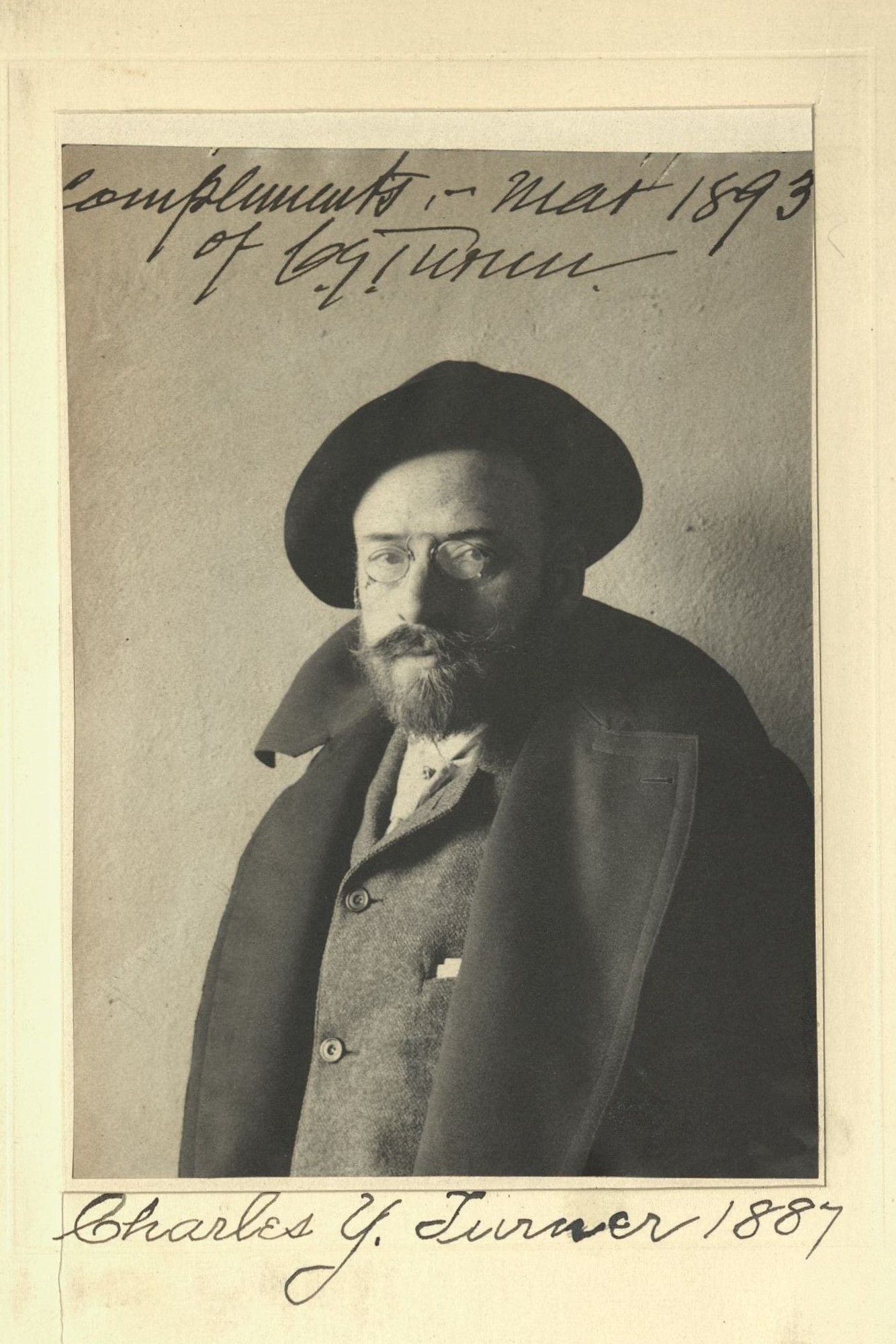Artist
Centurion, 1887–1918
Born 25 November 1850 in Baltimore, Maryland
Died 31 December 1918 in New York (Manhattan), New York
Buried Friends Cemetery , Baltimore, Maryland
, Baltimore, Maryland
Proposed by Thomas Moran and Eastman Johnson
Elected 5 November 1887 at age thirty-six
Proposer of:
Seconder of:
Supporter of:
Century Memorial
The sudden death of Charles Yardley Turner on New Year’s Eve of 1919 startled and shocked his many friends of the Club which he had always loved, and in which for thirty years—even when, because of professional duties, resident of another city—he was always a familiar figure. After studying with Laurens and Munkatsky, in one of those Paris groups of American painters who were presently transplanted, in a body as it were, to New York and the Century, he began by painting genre pictures until he won the competition for decorating the foyer of the Manhattan Hotel. After that marked success, his work was almost wholly mural. His greatest work, perhaps, was his decoration of the halls of the Baltimore Court House; but the State House at Madison, Wisconsin, and the Court House in Jersey City contain excellent works from his hand, and other public buildings, hotels, and churches were decorated by his imaginative brush. Except for what he did in churches, all of his work was historical in character. It was he who, as director of color at the Baltimore Pan-American Exposition, produced so remarkable an effect from the use of color on the exterior of the buildings—the first time that any public exhibition had been thus treated on so large a scale. For his mural work, he received the rarely-awarded and highly-prized gold medal of the Architectural League.
To frequenters of the Club, Turner will always be a familiar recollection in his seat at the corner table of the dining room or in the cheerful groups in the late hours of a Saturday evening. Reticent in speech himself, what he said was marked by judgment, by good sense, and by the kindly and tolerant spirit which characterized his every thought.
Alexander Dana Noyes
1919 Century Association Yearbook

